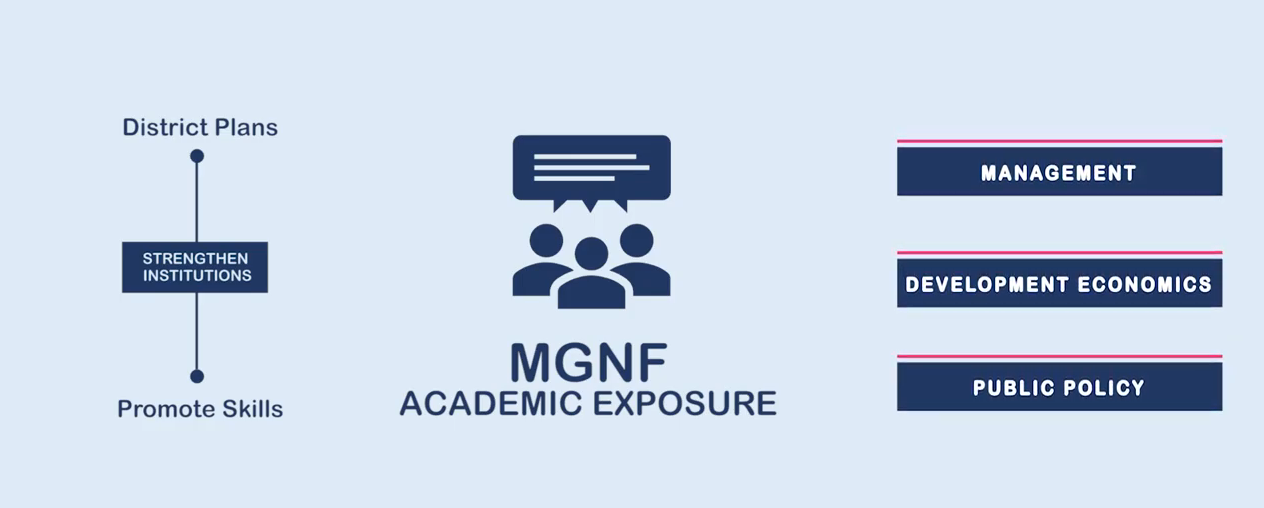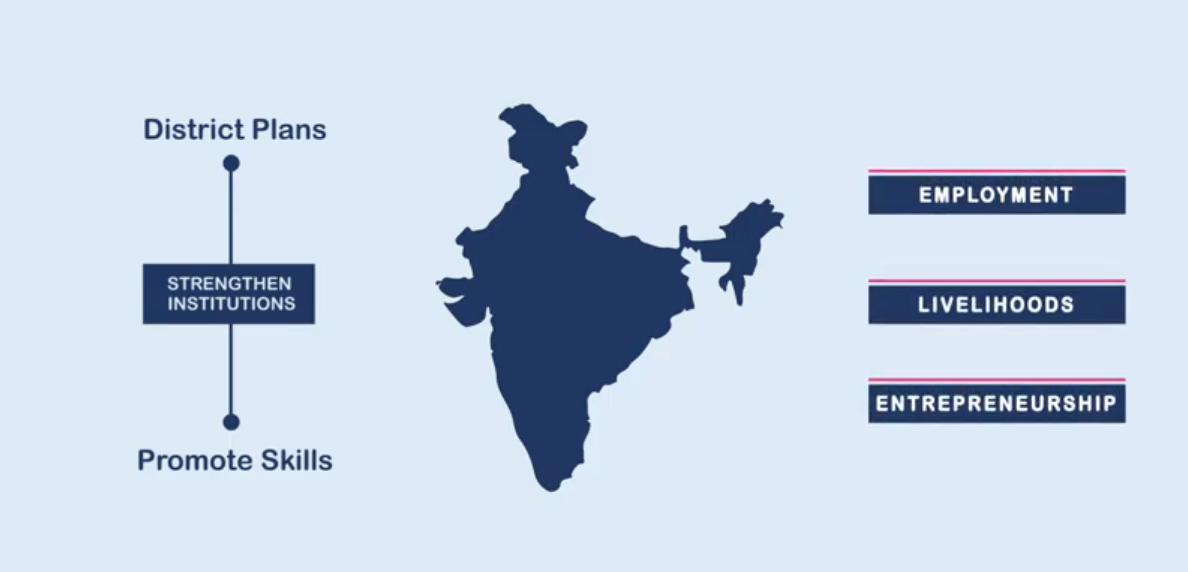MGNF Programme Structure
Academic Module
The on-campus academic modules will offer applied and conceptual understanding of key ideas around management, development economics, skills, and an integrated exposure to improve the Fellow’s ability to plan and link different activities to understand the development process. With each Academic Module consisting of 10 working days, the entire duration of the Academic Module is 40 class-room days. The academic content in the MGNF will rely on classroom teaching, projects, case discussions and classic, closed book exams.
|
Key Learning Areas |
Session Proportion |
|
Management Methods in Public Policy |
35% |
|
Public Policy and Economic Development |
17% |
|
Soft Skills to negotiate Public Administration |
31% |
|
Skills and Livelihoods |
18% |

District Immersion
Under the District Immersion Module, Fellows will be assigned to pre-selected districts randomly, keeping in mind language requirements. They will work in the district through the District Skills Mission and use their on-campus learning components to document and understand the potential of employment and livelihoods in the skills. Given its long-term nature, the Fellow is expected to identify a set of options and identify barriers and policy support that can help its realization. Besides the experience in the district, the DI module will have two components – 1) Workshops and 2) IIMB Mentoring and Support.
WORKSHOPS
The series of integrative workshops form an important learning component of the programme. In each workshop, the Fellows will present specific details about the district where they have been assigned.
IIMB SUPPORT AND MENTORING
Each Fellow will be assigned a Mentoring Team (MT) that will guide, coach and ideate with the Fellow to provide an ecosystem of support. The MT will be the first point of contact for the Fellow as they engage with difficulties, constraints, successes, etc.

